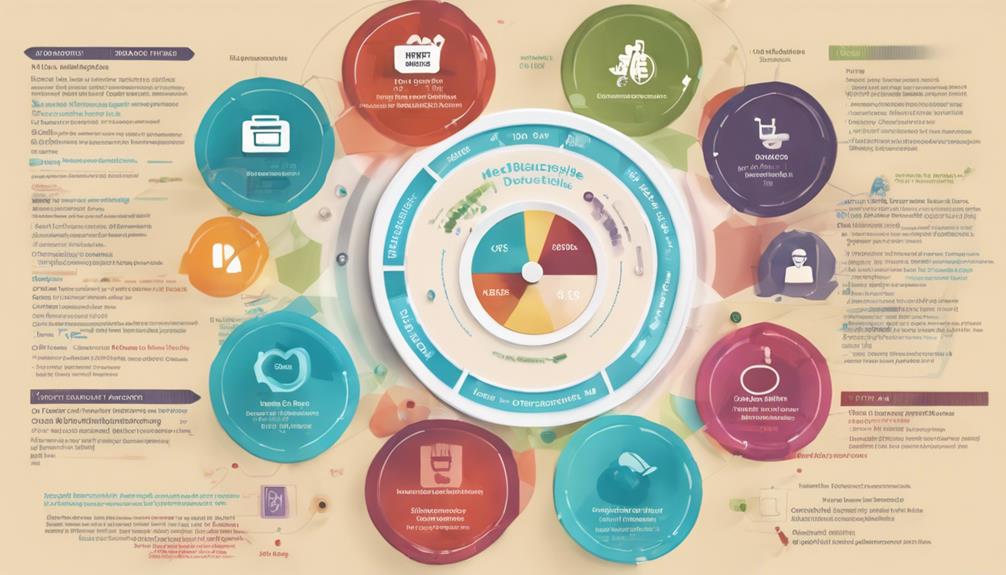Medicaid is a crucial program that provides healthcare coverage to millions of Americans, particularly those with low income. In Virginia, various Medicaid plans cater to different populations, ensuring that vulnerable residents receive the medical care they need. In this article, we’ll explore the different Medicaid plans available in Virginia, helping you understand your options and how to navigate the application process effectively.
Understanding Medicaid in Virginia
Medicaid in Virginia is a state and federally funded program designed to assist individuals and families with limited income and resources. Managed by the Virginia Department of Medical Assistance Services (DMAS), Medicaid provides essential healthcare services, including hospital visits, doctor visits, nursing home care, and preventive services. The program is available to various groups, including pregnant women, children, individuals with disabilities, and elderly individuals. Understanding how Medicaid operates in Virginia is crucial for those who may be eligible for assistance.
Eligibility Criteria for Medicaid in Virginia
To qualify for Medicaid in Virginia, applicants must meet specific eligibility criteria. Generally, the requirements include income limits, residency status, and certain categorical conditions. As of 2023, adults aged 19 to 64 must have an income at or below 138% of the Federal Poverty Level (FPL) to be eligible. Pregnant women and children have different income thresholds, often higher than those for adults. Additionally, individuals must be residents of Virginia and meet other criteria related to age, disability, or family status. Understanding these eligibility requirements can help potential applicants determine if they qualify for Medicaid.
Types of Medicaid Plans Available in Virginia
Virginia offers several Medicaid plans, each tailored to meet the diverse needs of its residents. The primary types of Medicaid plans include:
1. Medicaid Expansion: Under the Affordable Care Act, Virginia expanded Medicaid in 2019 to cover more low-income adults. This plan provides comprehensive healthcare services to those who meet income criteria.
2. Medicaid for Children: Virginia’s Medicaid program includes coverage for children under 19 years old, which is vital for ensuring children receive necessary medical care.
3. Medicaid for Pregnant Women: Pregnant women in Virginia can access Medicaid services to help cover prenatal care, labor, and delivery costs.
4. Medicaid for Individuals with Disabilities: This plan provides specialized services for individuals with physical or mental disabilities, ensuring they receive the necessary care and support.
5. Medicaid for the Elderly: Older adults may qualify for Medicaid to help cover long-term care services, including nursing home care or in-home assistance.
By understanding the different types of Medicaid plans available, residents can identify which program best suits their needs.
Managed Care Organizations and Medicaid
In Virginia, many Medicaid recipients receive their healthcare services through Managed Care Organizations (MCOs). These organizations are responsible for providing and coordinating care for Medicaid members. Some of the prominent MCOs in Virginia include Anthem HealthKeepers Plus, Magellan Complete Care, and UnitedHealthcare Community Plan. Each MCO offers different benefits and services, so it’s essential for enrollees to review their options carefully. Choosing the right MCO can significantly impact the quality and accessibility of healthcare services for Medicaid recipients in Virginia.
Benefits Covered by Virginia Medicaid Plans
Virginia’s Medicaid plans cover a wide range of benefits designed to meet the healthcare needs of eligible individuals. Key benefits include:
– Primary and Specialty Care: Access to doctors for routine check-ups, specialist visits, and ongoing care for chronic conditions.
– Emergency Services: Coverage for emergency room visits and urgent care services.
– Hospitalization: Inpatient hospital services, including surgeries and overnight stays.
– Preventive Services: Routine screenings, immunizations, and wellness visits to promote health and prevent disease.
– Mental Health Services: Access to behavioral health services, including counseling and therapy.
Understanding the benefits covered by Medicaid plans is vital for recipients to utilize their health coverage effectively.
How to Apply for Medicaid in Virginia
Applying for Medicaid in Virginia is a straightforward process. Interested individuals can apply online through the Virginia CommonHelp website, by phone, or in person at local Department of Social Services offices. The application requires providing personal information, including income, household size, and other relevant details. It’s essential to gather all necessary documentation, such as proof of income and residency, to expedite the application process. Once submitted, applicants will receive a notification regarding their eligibility status.
Understanding the Renewal Process for Medicaid in Virginia
Once enrolled in Medicaid, recipients must renew their coverage periodically. The renewal process ensures that individuals still meet eligibility criteria. Virginia Medicaid typically requires annual renewal, during which recipients must provide updated information about their income and household status. Failure to complete the renewal process may result in a loss of coverage. It’s crucial for Medicaid recipients to keep track of their renewal dates and submit the necessary documentation on time to maintain their benefits.
Resources for Virginia Medicaid Recipients
Virginia offers various resources to assist Medicaid recipients in navigating their healthcare options. The Virginia Department of Medical Assistance Services (DMAS) provides comprehensive information about Medicaid plans, benefits, and services available. Additionally, local community organizations can offer support, including help with applications and understanding healthcare rights. Medicaid recipients can also contact their Managed Care Organization for assistance with accessing services or resolving issues related to their coverage.
Conclusion
Understanding the Medicaid plans available in Virginia is essential for eligible residents seeking healthcare coverage. With various options tailored to meet the needs of different populations, it’s important to assess eligibility and choose the right plan. By familiarizing yourself with the application process, benefits, and renewal requirements, you can ensure that you or your loved ones receive the necessary medical care. For more information, visit the Virginia Department of Medical Assistance Services website or contact local healthcare resources to get started on your Medicaid journey.Dhs Medicaid Application
